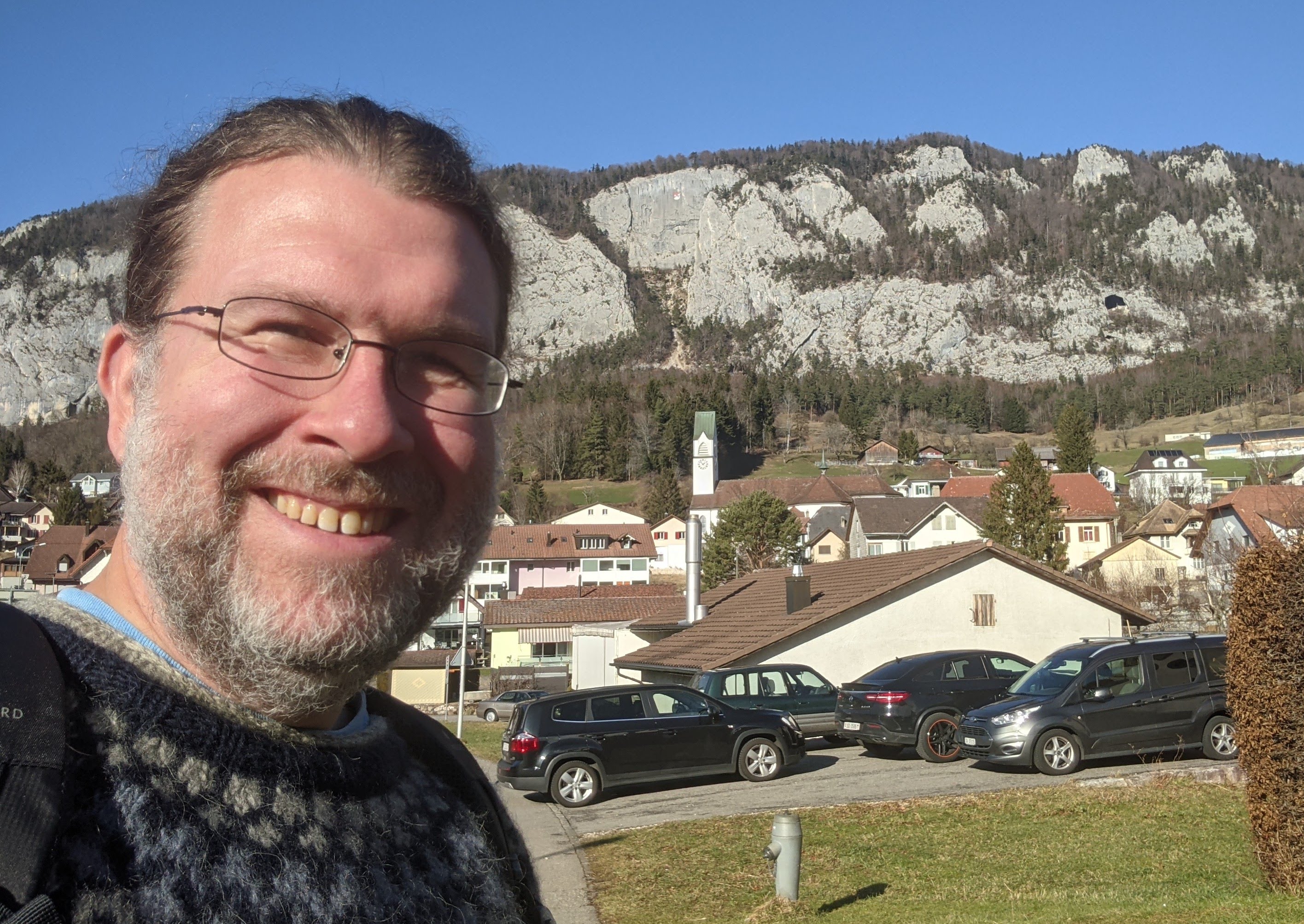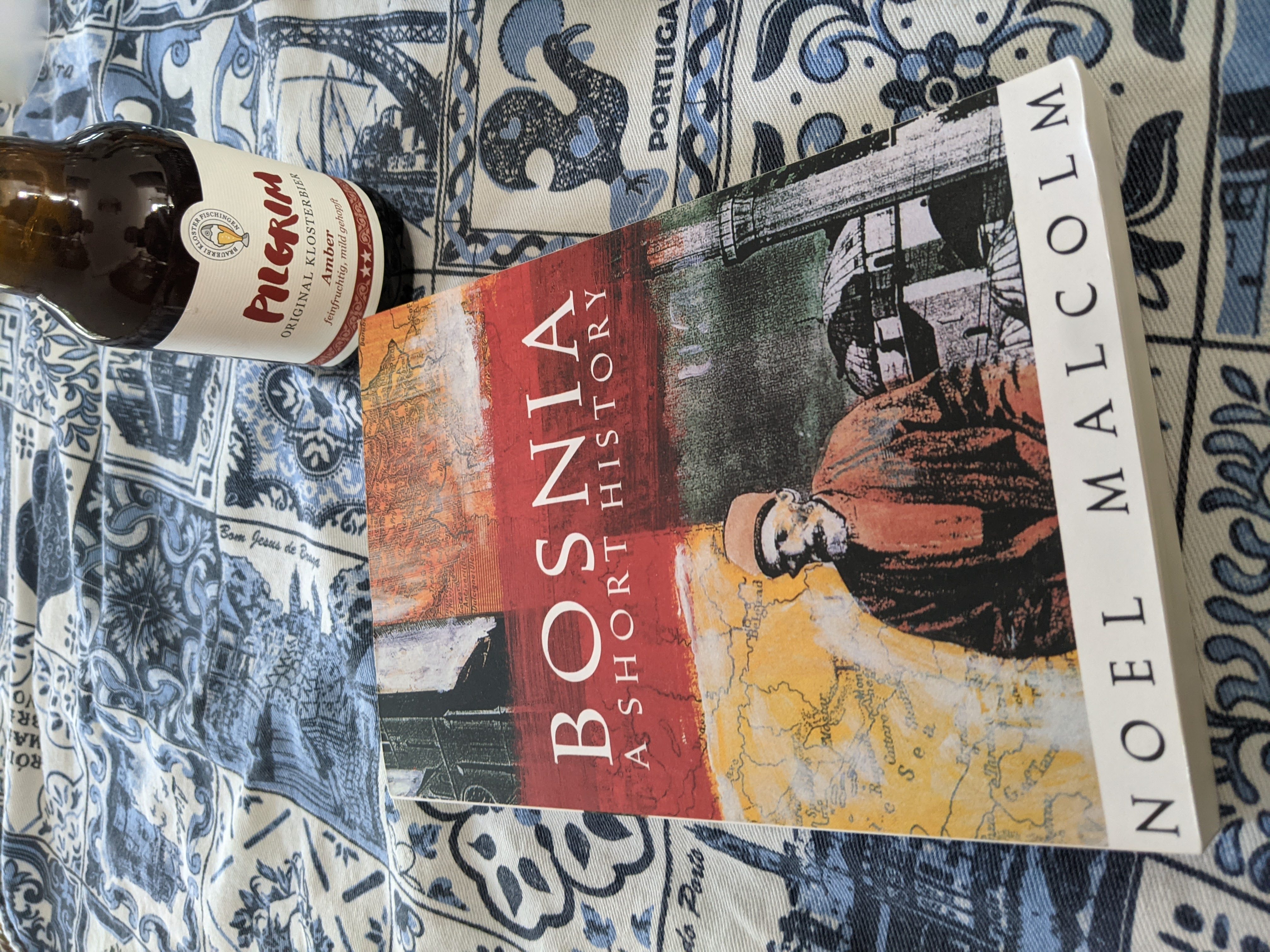Bosnia: A Short History |

|
19 February 2024 - Adetswil
Sitting in a hottub last Fall in Bled, Slovenia I met a nice old grandfather traveling with his rambunctious grandson. In between the splashes we discussed places we'd been and it turned out he'd been to the US a number of times in his job as a Croatian officer. The next day in the same hottub I had a conversation with a Macedonian who now lived in Germany about how silly it was that his country had to rename itself to get into the EU. Spending the night in Belgrade earlier in the year I'd seen some graffiti denouncing NATO, but didn't personally run into anyone that particularly cared that my country bombed that city three decades earlier. People, it seems, can have really strong opinions about Bosnia though. In my Thursday Lauftreff I mentioned that I was going to run my next race in Bosnia and Michael was vehemently against ever traveling there. Then yesterday in CityRunning group I mentioned my race in Mostar to someone who said, yes, he knew where it was because he was Serb. And did I know that many Serbs were murdered there? And was I aware that the Croatians were on the side of the Nazis in WWII? Then when I told him about some of my other travels in the former Yugoslav states he asked what 3-letter agency I worked for. I think he was only half joking.
To get ready for my trip I read Noel Malcolm's Bosnia: A Short History. Not surprisingly because it was written by an Englishman during and after the war in the 90's, the Serbs do not come off well in that period. The written history of Bosnia dates back to the Roman period, but Malcolm starts in 1180 with the rule of Ban Kulin. The Great Schism between the Catholic and Orthodox churches happened not long before that and Bosnia was on the border between those two faiths. When the Turks conquered the country in 1463, a third major faith of Islam was poured in as well. And, like everywhere in Europe, there was a leavening of Jews. Bosnia was never far from the Hapsburg border though, and with the ebb and flow of Ottoman conquests large migrations occurred with people fleeing from or to the Bosnia depending on their religion. In the 19th century the Hapsburg border moved south to include Bosnia. WWI saw the end of both the Hapsburg and Ottoman empires, with the Balkan Slavs left to form a country of their own. Bosnia was to spend most of the 20th century inside this kingdom and then the subsequent socialist state. The main division in the country was between Croat Catholic Latin alphabet users vs. the Serb Orthodox Cyrillic alphabet users, with both arguing that the Muslims were really Serbs or really Croats. When Yugoslavia broke up, Bosnia became the bloodiest battleground of the ensuing wars as the country had local majorities of Muslims, Croats, and Serbs throughout it. The Dayton Accords setup a caretaker government that is still in place today, but Malcolm's book ends there.
My trip to Bosnia will be to a country that has enjoyed decades of peace, but is still outside the European Union and yet not really sovereign either. There are two "political entities", the Federation of Bosnia and Herzegovina and the Republika Srpska, supervised by a veto-wielding "high representative" selected by an international "peace implementation council". I had a Bosnian refugee for a friend in high school in the mid-90's, but didn't really understand or follow the conflict. Iwona made pilgrimage to Medjugorje when she was young. I will run a race in Mostar in March, enjoy the food, and talk to people like I do everywhere. I visited Auschwitz, so I'm sure I can handle visiting Srebrenica, but I'm not sure how much war tourism I want to do. The Owen Wilson movie Behind Enemy Lines still colors my picture of the country. It will be good to get firsthand experience!

